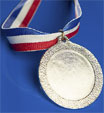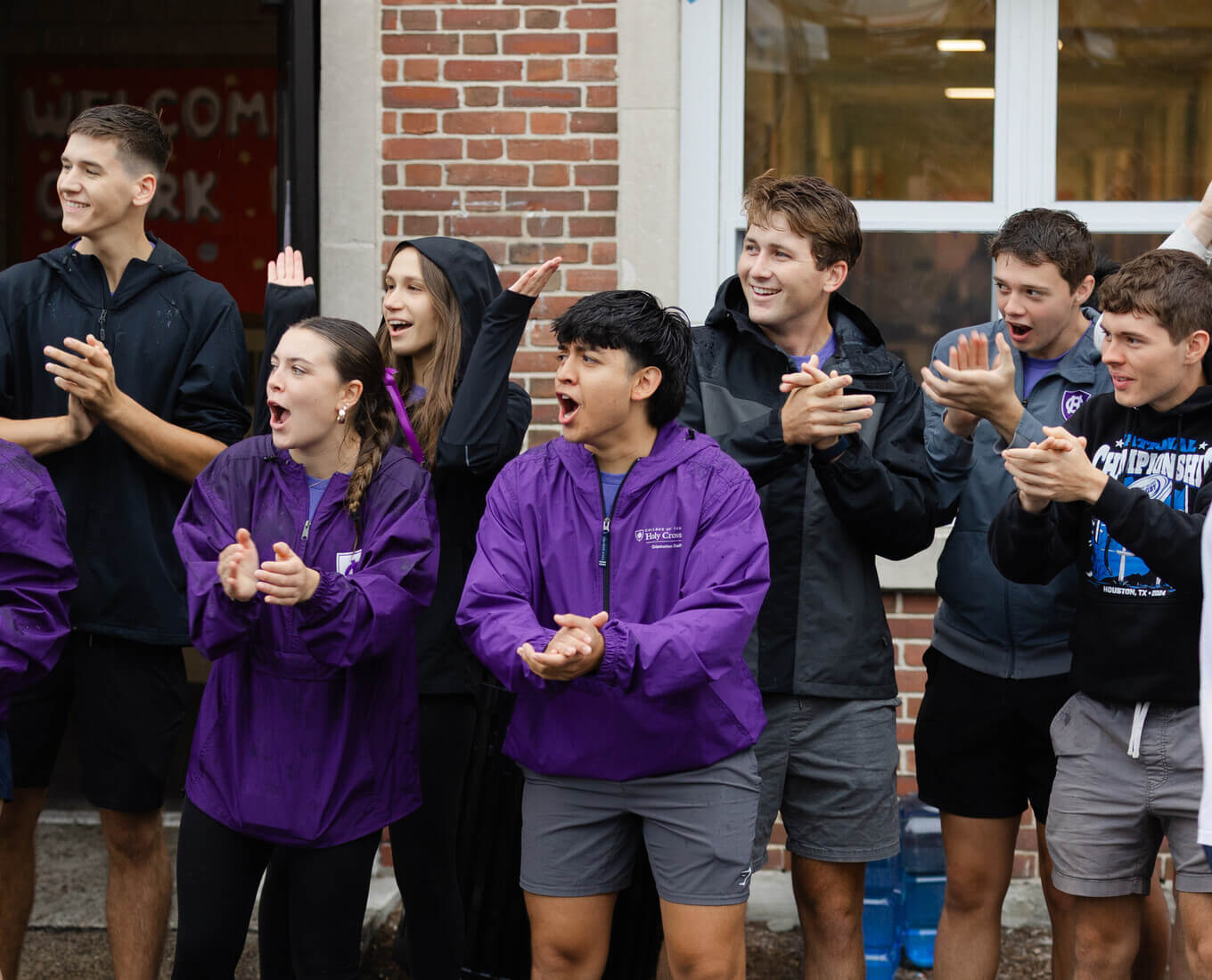 Since 1967, a select number of Holy Cross students have had an uncommon senior year.
Since 1967, a select number of Holy Cross students have had an uncommon senior year.
Every year for 40 years, one or two — and, more rarely, up to three — seniors have created their own curriculum for their final two semesters at Holy Cross. With the help of academic advisers among the faculty, they work independently and produce a significant research or creative project, the culmination of their undergraduate experience.
The Fenwick Scholar Program — the College’s signature honors program — is named for Bishop Benedict Joseph Fenwick, who founded Holy Cross in 1843. It is one of the highest academic awards bestowed by the College. Over the years, the range of topics has been extraordinary — which made this year’s 40th reunion dinner for Fenwick Scholars a special occasion to reflect on the richness of this distinctive program.
The anniversary dinner will take place this weekend on April 28 in Hogan Suite A. About 30 scholars attended the 25th anniversary dinner and even more are expected for the 40th.
In 1975, psychology major Robert Hayden spent his Fenwick year studying the relationship between religiosity and various forms of altruistic behavior. “It was an extraordinary and dynamic learning experience; a great introduction and transition into graduate school,” Hayden has said. “The Fenwick experience pulled all four years of college together into one project that set the tone for years to come.”
Other projects have included scientific study, theory and analysis of literature or religion, and the origins of dance. Many former Fenwick Scholars attribute their career paths and continued education to this academic experience, and their one-on-one work with their faculty mentors and advisors. The program has a campus-wide element, too; at the end of the final semester, each Fenwick Scholar is required to give a presentation open to the College community.
Periodic reunions of Fenwick Scholars are important, says Richard Matlak, director of the Center for Interdisciplinary and Special Studies (CISS), which administers the program. “The individuals who have gone through the program have never been identified as a cohort. This way they can finally be recognized as a distinct group.”
At this year’s dinner, returning scholars and their faculty mentors, as well as current Fenwick Scholars, will hear brief presentations, including a talk by Rev. Michael C. McFarland, S.J., president of the College. Returning scholars will also be presented with bronze Fenwick medals, placed in glass and engraved with the recipient’s name and graduation year.
Fenwick Scholars are nominated by their department in their junior year, and create an extensive project plan in consultation with their faculty advisors, which is then submitted to the Fenwick Selection Committee for evaluation and selection.
The selection process is rigorous. Matlak emphasizes that expectations are high. “The nominees are always exceptional students. To be in this program you have to have mastered your research habits, be independent, have spectacular critical and analytical skills, and be willing to sacrifice their senior year in the classroom for their projects.”
The very first Fenwick Scholar was Richard Pedersen ’67. His project was a literary analysis of the great 18th century comic novel, Tristram Shandy. He went on to study at Oxford as a Rhodes Scholar and later received his law degree from Yale.
Other Fenwick Scholars have included Joyce O’Shaughnessy ’78, a prominent medical oncologist specializing in breast cancer; Paula Kane ’80 has her Ph.D. and is an associate professor and Marous Chair of Catholic Studies at the University of Pittsburg; Ted Wells ’72, is now a prominent litigation lawyer; and Rev. Edward Vodoklys, S.J. ’72, who is currently a professor of the classics at Holy Cross. All of the Fenwick Scholars in the past have made great accomplishments in their pursuits after Holy Cross.
What does the future hold for this year’s Fenwick Scholars? Time will tell, and we’ll certainly keep our eye on the achievements of writer Cristina Baldor, scientist Candida Desjardins, and musicologist Catherine Hughes.
By Micaila Donovan '07
Related Information:
* The Fenwick Scholar Program
* Academic Conference to Showcase Student Work
Anniversary Dinner to Draw 40 Years Worth of Fenwick Scholars Back to Campus
Recipients of College’s highest honor often rise to national prominence
Read Time
3 Minutes
